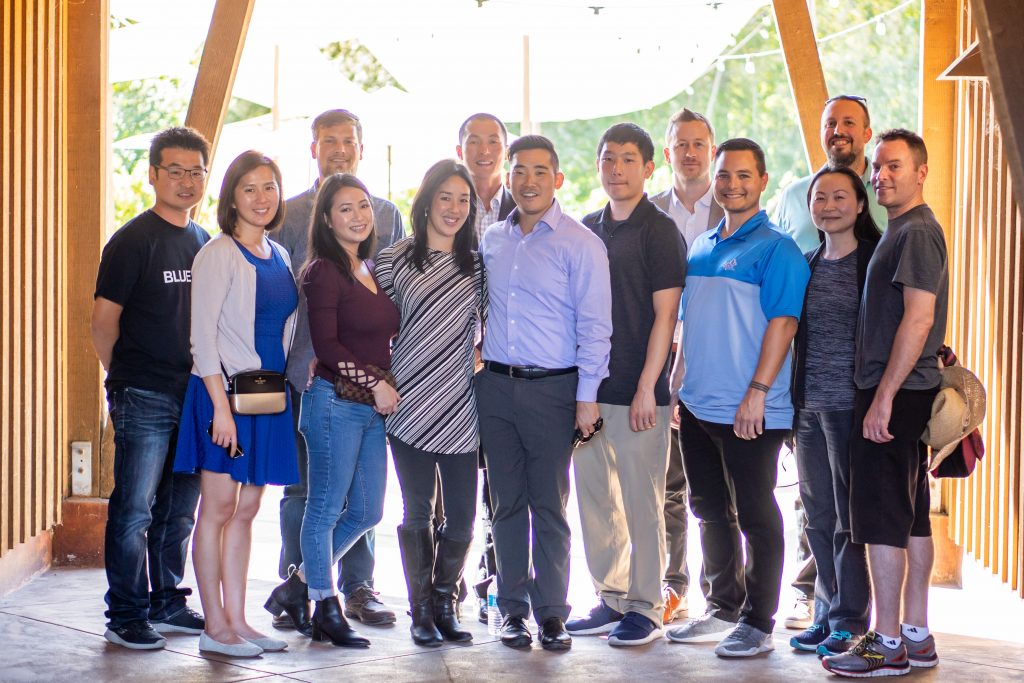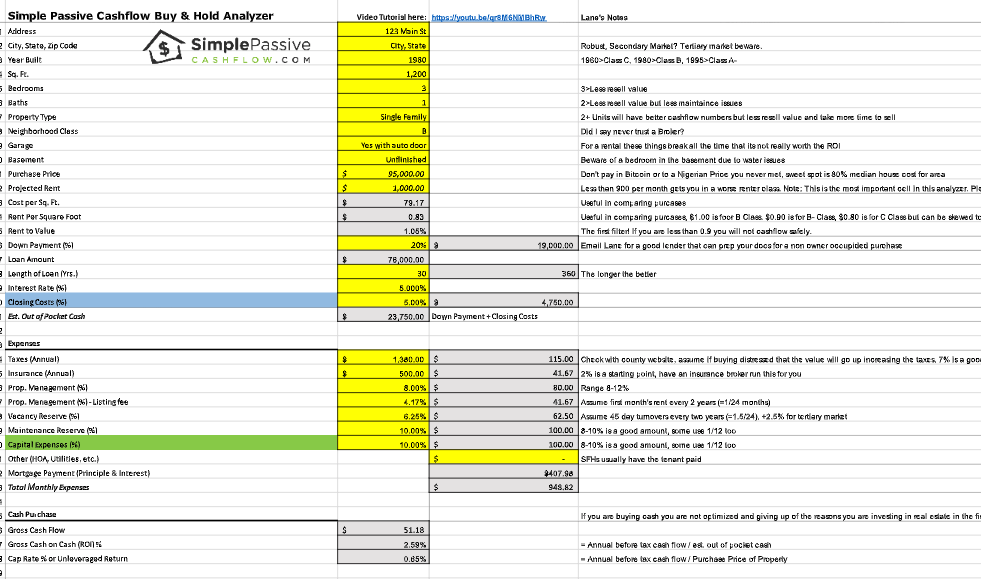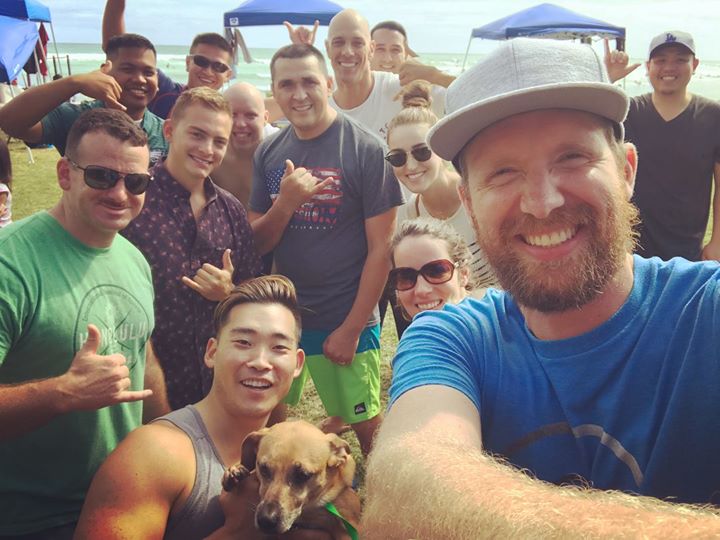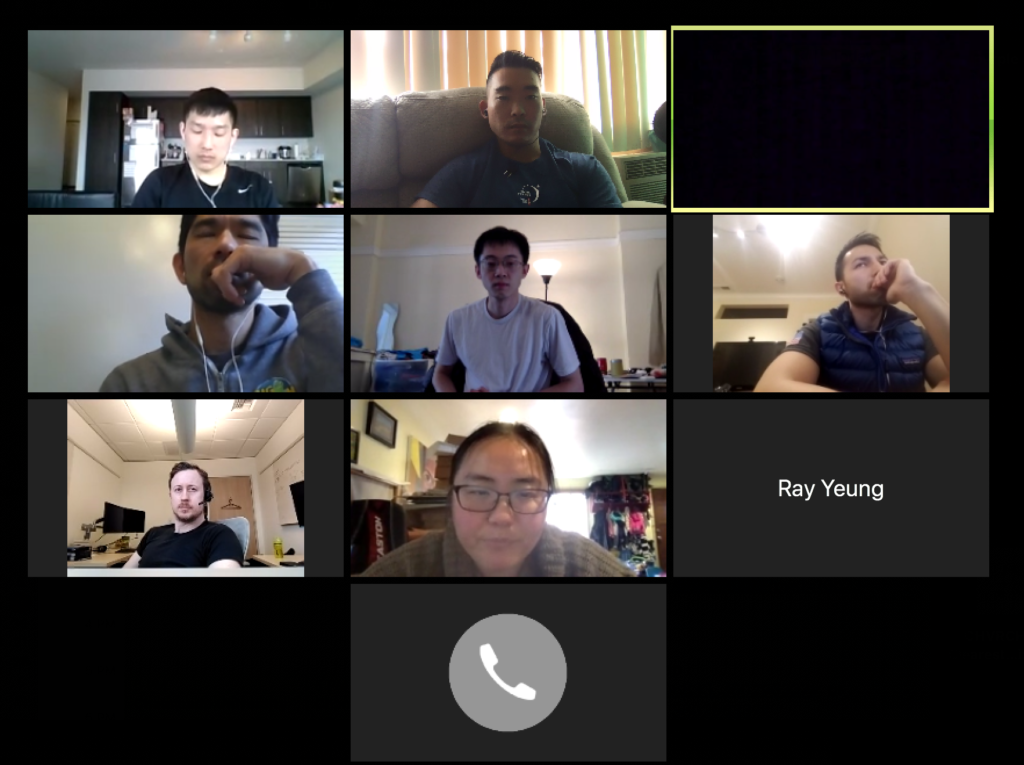Learn How to Get 30%+ ROI on Rental Real Estate
I’m going to show you the hidden ways you make your money on real estate rentals that blow REITs, Crowdfunding deals, and Real Estate Notes out of the water.
There are potentially better investments (risk divided by reward) backed up by a hard asset, however, those deals are not obtainable by the average individual who does not have access to a rich and powerful network of people and who does not have a net worth exceeding $1-million.

The simple rental property is something that is accessible to everyone and today we are talking about the math behind it. So put on your propeller hats, because we’re about to talk numbers.
As a rental investor you make money four ways:
- Cash Flow
- Appreciation
- Tax Benefits
- Principal Reduction/Debt Paydown
1) Cashflow
Cashflow is your income (rents), minus your expenses and mortgage.
For example, if your tenant pays you $1,000 a month and if your monthly expenses including principal, interest, taxes, insurance, and maintenance/occupancy reserve are $800 a month, then the $200 difference is now income in your pocket.
The goal is to keep acquiring rentals that will increase your passive cashflow. It is this cashflow that is the money that you will live off of to be able to quit your day job. In the board game ‘Cashflow,’ you win when your cashflow is greater than your expenses. When this happens you have “escaped the rat race” and able to spend your time doing things that are more meaningful to you.
I recognize that in the Real Estate investing community there are two camps:
Cashflow focused
Simplepassivecashflow.com is on the cashflow focused bandwagon. We believe that acquiring assets (although takes more longer) that increase your cashflow is prudent way to go.
Appreciation Focused
Folks in the appreciation focused group feel that buying homes in the Midwest is silly because those “fly over States” never appreciate, and they fail to see the hidden benefits of real estate.
I underwrite my deals to look at the bigger picture, knowing that it is the cashflow that will eventually replace my income from my day job. I admit that this will widely depend on what you use as the assumed average appreciation for the purchases in markets with more rapid appreciation, but appreciation is not constant – it is cyclical, and I prefer to see a steady rise. By purchasing in cashflow markets, the highs aren’t as high, but corrections aren’t as painful.

I run a passive investor Meet-Up in Seattle, and there is always an old-school investor who is investing for appreciation and was one of the unlucky folks. Basically, what happened is that they bought during the wrong time in hopes that the market would go up 5-10% every year, but instead, they are underwater. And to add insult to injury, they bought it with negative cashflow and are still losing money every month. Now that investor/gambler is in the doldrums for nearly a decade unable to do anything in terms of building his/her portfolio.

Download the Analyzer Below to See if Your Property Cashflows!
2) Appreciation
This is the famous topic of dinner/cocktail parties where people brag that they bought their home for 200k and now it’s worth 400k and how they had incredible foresight. Well congratulations, appreciation “floats all boats – even ones with holes.” Despite how cool it sounds, appreciation is a hidden benefit that you only realize when you sell your investment property for greater than what you bought it for – it’s a paper gain. Even though you can’t live off appreciation like cashflow (unless you use a HELOC or refinance).
Example:
So if you bought a home for 100k and it went up by 5% which is a pretty good year, your property would be worth 105K… but wait…your initial investment was 30k so now you have 35K. Here is the math.
$30K initial investment creates $5,000 this year in equity gain
5,000/30,000=16%, is the appreciation return (3x on a 5% market gain)
I’m not a fan of including this in my underwriting because I believe it is gambling, but I just wanted to show you the math behind it so you can see how your leverage is at work with government subsidized loans. It’s interesting to note that when the market goes down, more people can’t afford homeownership and turn to renting, which is good for the landlords. While an economic downtown is generally bad for those banking on appreciation, my monthly cashflow is more resistant to economic changes.
3) Tax Benefits
Your rental is a business, and if your expenses are tracking ~50% of your income, then you will be running at a near zero profit business on paper and will not have any taxable income. If you are super-sneaky, you can also pass expenses through this business of yours, but work with your CPA first and don’t get greedy. Taking illegal shortcuts will definitely cost you in the long run.
But wait… the cool thing about real estate is that you can take a depreciation deduction off your taxable income. This amount is dictated by taking 1/27.5th the building value of your property for the first 27.5 years of ownership. With the expenses negating your income this depreciation incentive is taking that amount off your W-2 day job income. (Side note – unlike stocks/other assets when there is a capital gain you pay taxes on the gain you can defer capital gains tax when you sell by using a 1031 tax exchange.)
Example:
100K home has a typical building value of ~$70k
$70k/27.5=$2,600 per year that you are able to write-off
$2,600 at the 25% tax rate is savings of $650 per year
Going back to the original investment: 650/30,000=2% is the tax benefits. Not bad but I’ll take it.
4) Principal Reduction
When you rent out your home, your tenants are paying down your mortgage a little bit each month with their hard earned money – not you. You can download a great mortgage/amortization spreadsheet by signing up with your email on the sidebar menu. In the beginning of a mortgage, most of the payment is going toward the interest payment side as opposed to the principal pay down/equity for you. Just know that you don’t realize any of these gains until you sell/refinance the property but it’s there.
100K home (with 25% downpayment) has a typical PITI payment of around $550/month. Of that 550 only ~$150/month or ~$1800/year is going to principal paydown as equity gain.
Example:
1,800/30,000=6% is the Principal Reduction benefits
Congratulations on sticking with the article. The summary of the numbers are below:
- Cash Flow = 12%
- Appreciation = 16%
- Tax Benefits = 2%
- Principal Reduction/Debt Paydown = 6%
- Total = 36%

Love Hate Relationship with Appreciation
When I purchase investments I define my goal as cashflow over appreciation. Like many things in life, you can’t have it all, such as both strong appreciation and strong cashflow. I invest in the boring “cashflow markets” because I define my endgame as needing passive cashflow that I can live off of. Appreciation is something I can’t live off of since it does not appear in my bank account each month. I see appreciation as the icing on the cake or the dessert with the meal. Therefore, I remove the appreciation from my calculation/underwriting and plan for those projections.
For the above example the total return without appreciation would be Total=20% which is not bad and still greater than the stock market.
I recognize appreciation has the potential to be a very large part of this return in terms of a colossal windfall in a good market (10% equals 40% gain with typical leverage) however there is also the potential for large downswings. Frankly, I try to simplify my life and therefore I am not cool with the volatility and is another reason I don’t use stocks/mutual funds. I tell a lot of investors who purchase homes with negative cashflow such as a $500k rental in Seattle that rents for $3,000 per month that they need to be conscious of what the numbers are telling them. If they can look me in the face and say they are investing for appreciation then I am cool with that – that is their goal. However, most people in this situation (Mom & Pops who were taught to just buy a property despite if it made fiscal sense) are clueless that they are losing money to the tune of a few hundred dollars each month in cashflow. If you every played Paigow Poker, investing for appreciation is like the “fortune bet” where you keep paying into the side bet in hopes of hitting it big one.
For those stock-centric folks look at it this way. Appreciation in your home is similar to the gain in the price of a stock like Apple. The price of the stock goes up and down, however, the volatility is much less with rentals. There are some stocks like AT&T that produce dividends and those are similar to the cashflow from a rental. However, I don’t see many dividend stocks producing more than 4% compare with the double-digit cashflow returns from rentals.

Other hidden ways you make money that I do not consider: Equity Capture
This is when you buy a house for less than the market value. Many people say “you make your money when you buy” and this is what they are talking able. Personally, I pretty much buy at market value. I don’t have the time to do any work to find any deals which involve the arduous tasks of doing the direct marketing, tracking down leads, fix properties, or any of these active real estate investor past-times.
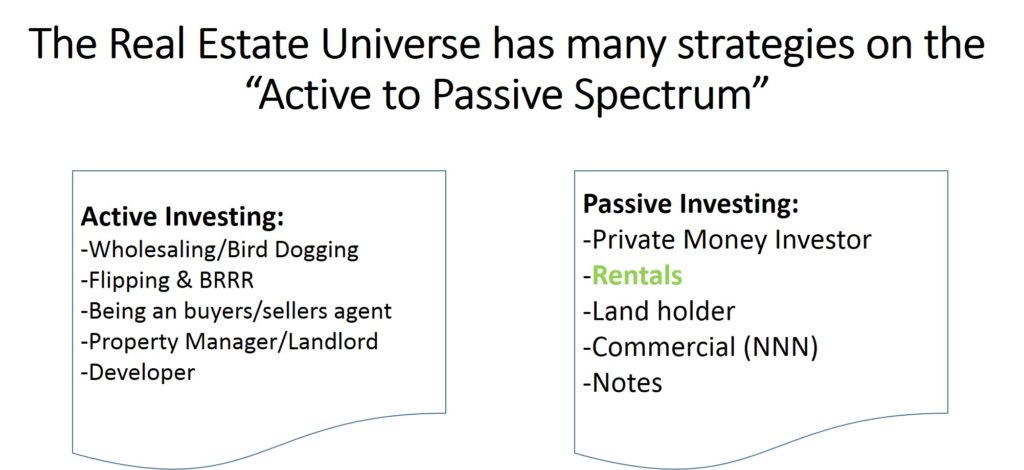
Another example of this is if you bought a house for $50K, put $30K into rehab (all in for $80K) and now the property is worth 100K on the open market (disregarding transaction costs) – you just created $20K of equity capture. This is a great way to acquire assets, but it requires money, time, and effort (that might have a higher and best use at your day job).

Other hidden ways you make money that I do not consider: Inflation Hedging
When your parents bought a home back in 1985, they spent about $30K on the property. Their mortgage payments were ~$100-$125 dollars per month and at that time that made up a noticeable portion of their family budget. Now fast forward to today and they are still paying the same payment (taxes and insurance have gone up). This illustrates how by having a mortgage you are locking in and hedging yourself from the inflations. Here are other reasons supporting inflation is going to be greater in the future:
Interest Rates
The past 30 years has been a semi-calm era that yielded 3% annual inflation. However don’t believe the BS. Call me a conspiracy theorist, but I would argue that it’s much higher than 3% since it is the government that is cooking the data. Just look at the ice cream container, the price has stayed in line with inflation, but the size just keeps getting smaller and smaller. There isn’t even real sugar in the thing.
Government Bailout
The knee jerk reaction from the US Government is to bailout the big banks from falling by keeping interest rates synthetically low. At some point, we will have to pay the debt back via two options. The unpopular option is to raise taxes/decrease government programs. However the government will just keep printing more money which will devalue the amount of money they owe, which the average American will not notice.
Negative Interest Rates
We are already seeing some European countries and Japan test out negative interest rates. As absurd as it sounds this is where you have to pay money to the bank to allow it to remain there.
I’m not saying that it’s going to be a total new world order but the best day to buy (and lock up 30-year mortgages) was yesterday and the 2nd best is today. Don’t use the excuse “Oh, I’m waiting for the next crash or evaluations are too high”. Instead, buy on fundamentals with healthy spreads in cashflow so when that next correction comes you are above water in terms of cashflow.
The Skinny
Rental real estate is the most time-tested wealth-building tool available to the average person. If you weren’t paying attention earlier, here is an acronym for you to explain to your naysayers who think you are crazy:
IDEAL
Income
Depreciation
Equity
Appreciation
Leverage
Real estate (not particularly your primary residence) is I.D.E.A.L.
-
I Stands for Income
The property produces income after it pays for expenses. This is called sash flow and it is what puts food on the table. This is a concept that most investors and regular people never understand... because most invest for appreciation or capital gain which is sort of like gambling. Rule 1 of investing is don't lost money!
-
D stands for Depreciation
Property depreciation can shelter the property income that is distributed to investors. The government engineers certain interests through the tax code, in order to encourage us to put our money in particular spaces. By creating ways to write off a portion of their investment cost through depreciation, they encourage people to invest in real estate. House flippers don't understand this as they make big sums of money (taking large amounts of risk in the process) but pay taxes at the highest rate.
-
E stands for Equity Growth
Equity comes from the fact that a portion of your mortgage is being paid down by a tenant or someone using the property. How nice of them.
-
A stands for Appreciation
Here is the investing for appreciation/capital gain part of the equation. One myth that people don't realize is that appreciation is concerned with keeping the value at or above the rate of inflation, and can come from two sources: a natural increase in property value over time (market appreciation), or value-added activities (forced appreciation) such as remodeling, expanding or improving the property in some way. Here at SimplePassiveCashflow.com appreciation is the icing on to of the cake and we focus on cashflow cause that is what we can control. We also don't consider your primary residence as an investment since it barely keeps up with inflation.
-
L stands for Leverage
Leverage is available via funds from institutions and raise capital from investors. Positive leverage is when the after tax unleveraged yield of the property exceeds the aftertax cost of funds. Taking on more debt is seen by most as irresponsible, almost a sin. But most (of those people) are broke. The truth is that debt is a tool.
Download the Analyzer Below to See if Your Property is I.D.E.A.L.
FAQ
I am not a lawyer but, consider another view of risk. The risk we don’t think about is having equity in your property. If there is a lawsuit, you can bet you are a bigger target if you have a bunch of equity in the property. If you have prudently leveraged your investment, it’s going to be a smaller target to go after.
A lot of experienced investors and non-experienced investors use large sums of cash to obtain properties at great discounts (70-80 cents on the dollar) via direct sales of pocket listings or auctions. Paying cash commands respect and is seen as a more reliable deal which is the reason for the discount on the property. The following will analyze the numbers behind this strategy and compare it to a typical 20% down payment conventional deal.
Scenario A: All Cash
Market Value: $100,000
Purchase Price = Money in the Deal: $75,000
Annual Cash Flow: $12,000 (assuming 1% rule)
Cash on Cash Return: 12k/75k = 16%
Scenario B: Typical 20% conventional deal
Market Value = Purchase Price: $100,000
Money in the Deal (20%): $20,000 + $3000 for closing costs above and beyond Scenario A
Annual Cash Flow: 12 months x ($1,000-540(PITI)) = $5,520 (assuming 1% rule)
Cash on Cash Return: 5520/23,000 =24%
Under these circumstances, purchasing all in cash would yield 8% less in returns on your principal investment. While the cash-on-cash return will vary between properties (and is only one part of the total sum of ways you are making money as discussed in this article), using leverage will allow your money to go further. However, do the math for yourself.
Save
Save
Save
Save
Save

